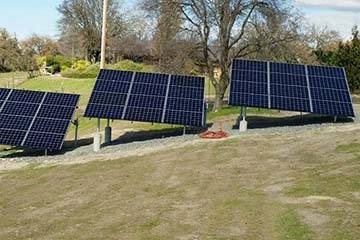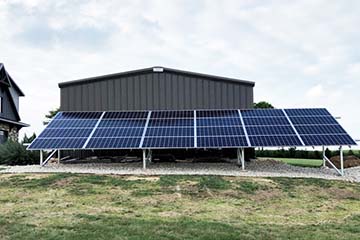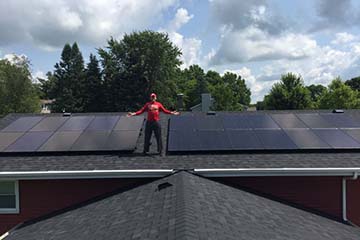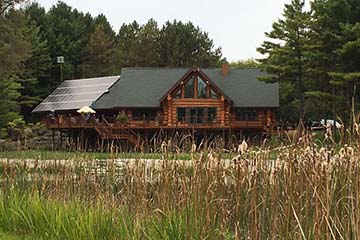Colorado On-Grid and Off-Grid DIY Blue Pacific Solar Systems
If you're interested in installing a DIY solar system in Colorado, you have the option to go either on-grid or off-grid. Blue Pacific Solar is a company that specializes in providing solar solutions, including DIY kits. However, it's important to note that as an AI, I don't have access to real-time information, and my knowledge was last updated in September 2021. Therefore, it's advisable to visit the Blue Pacific Solar website or contact them directly for the most up-to-date information on their offerings and availability in Colorado.
For an on-grid solar system in Colorado, you would typically connect your solar panels to the utility grid. This allows you to feed excess electricity back to the grid and receive credits or compensation for it. You can use these credits when your solar panels are not producing enough electricity, such as during the night or on cloudy days. An on-grid system can help you reduce your electricity bills and potentially earn incentives or rebates from your utility company.
On the other hand, an off-grid solar system is designed to operate independently of the utility grid. It requires energy storage in batteries to provide power when the sun is not shining. Off-grid systems are suitable for remote locations or areas where connecting to the grid is not feasible. With an off-grid system, you can have a self-sustaining power supply, but it requires careful planning to ensure you have enough solar panels and battery capacity to meet your energy needs.
When considering a DIY solar system, it's important to assess your technical skills and knowledge. Installing solar panels involves electrical work and may require permits and inspections to comply with local regulations. Be sure to research the requirements and understand the installation process thoroughly. If you're not comfortable with the technical aspects, it's advisable to hire a professional solar installer to ensure a safe and efficient installation.
Additionally, before investing in a solar system, it's recommended to evaluate your energy consumption, conduct a site assessment to determine the solar potential of your location, and consider factors such as shading, roof orientation, and available space. This will help you determine the appropriate system size and components needed to meet your energy goals.
Remember to consult with a solar professional or contact Blue Pacific Solar for personalized advice and guidance tailored to your specific needs and location in Colorado.
Colorado Hybrid, Wind, Solar, Battery, Generator, Off-Grid, On-grid systems
Colorado Hybrid Systems is a term used to describe a type of energy system that combines multiple renewable energy sources, such as wind and solar, with energy storage (batteries) and backup generators. These systems can be designed to operate both off-grid (independent of the utility grid) or on-grid (connected to the utility grid).
In a Colorado Hybrid System, solar panels and wind turbines are used to generate electricity from renewable sources. The energy produced can be stored in batteries for later use when the sun is not shining or the wind is not blowing. This stored energy can power the property during times of low renewable energy production.
Additionally, a backup generator can be included in the system to provide electricity during extended periods of low renewable energy generation or in case of emergencies. This ensures a reliable power supply even when the renewable sources are insufficient.
The specific design and components of a Colorado Hybrid System can vary depending on the energy needs of the property, available renewable resources, and individual preferences. It's important to work with a reputable renewable energy company or system integrator who can assess your requirements and design a system that suits your needs.
If you're interested in installing a Colorado Hybrid System or learning more about the options available to you, I recommend reaching out to renewable energy companies or system integrators in your area. They can provide customized solutions and guidance based on your specific circumstances.
Call Blue Pacific Solar Company, to get started today!



